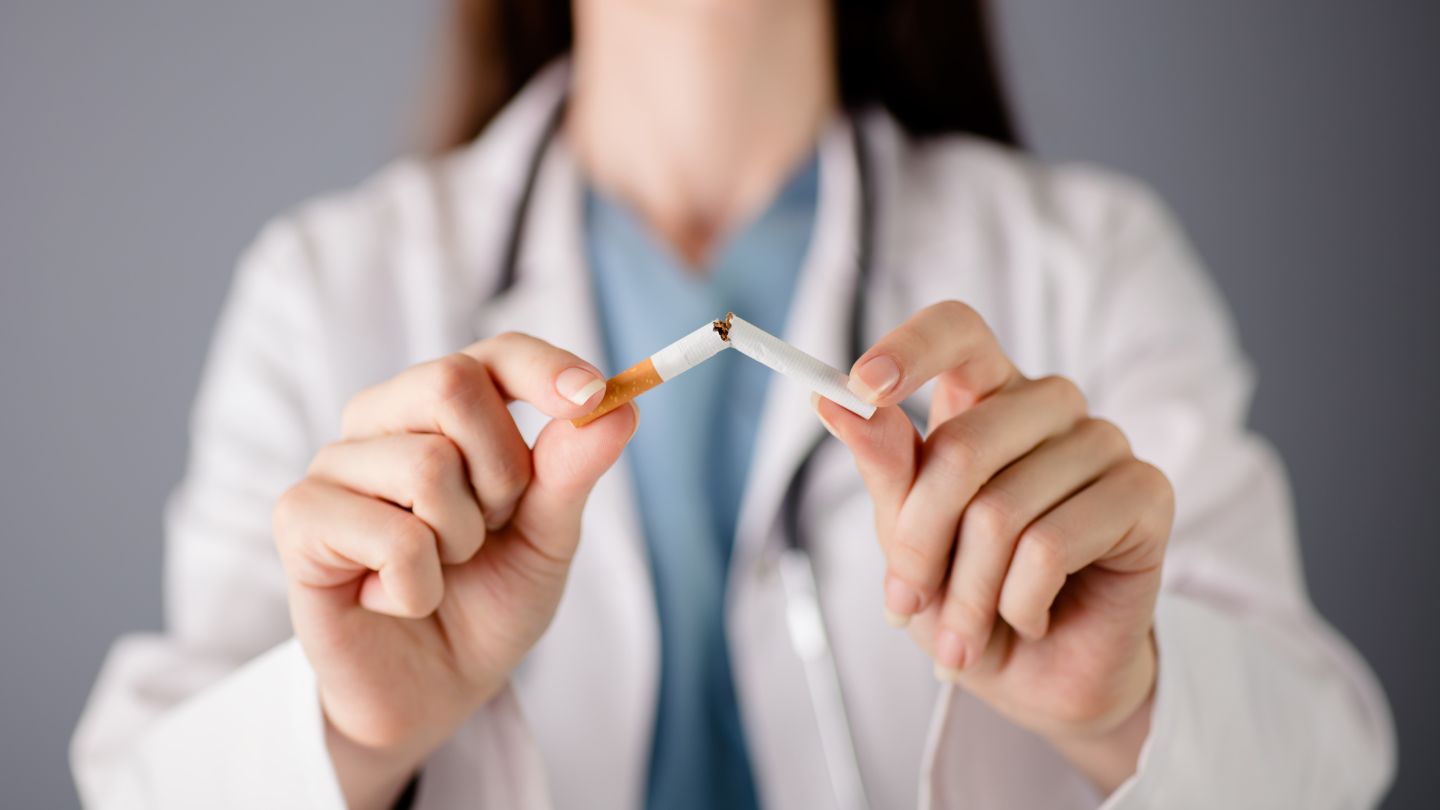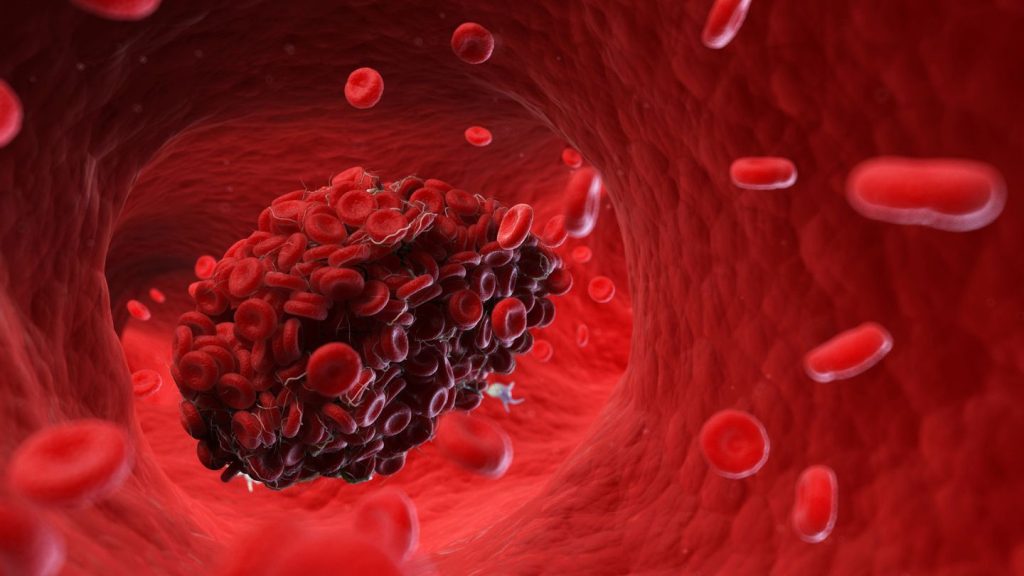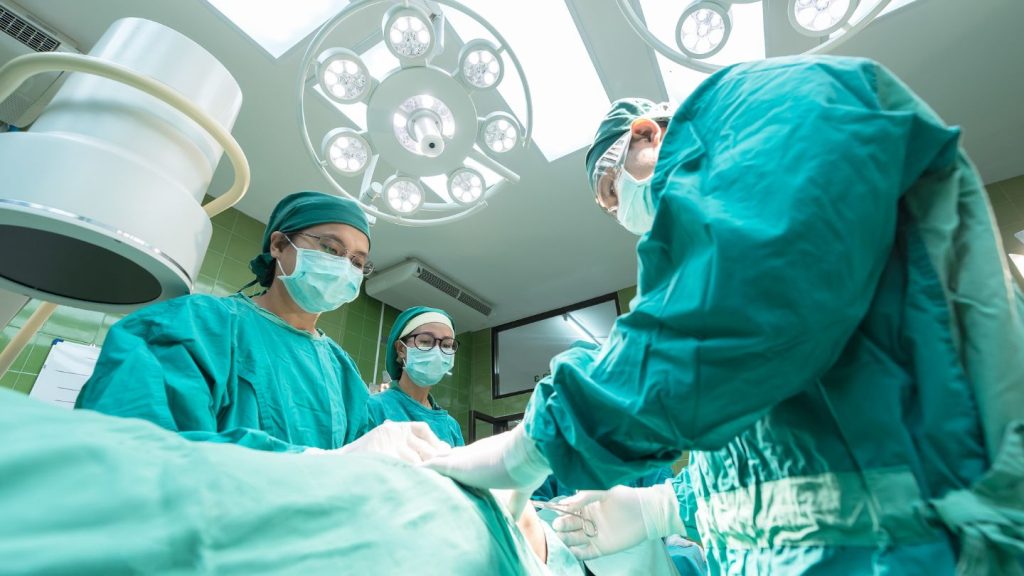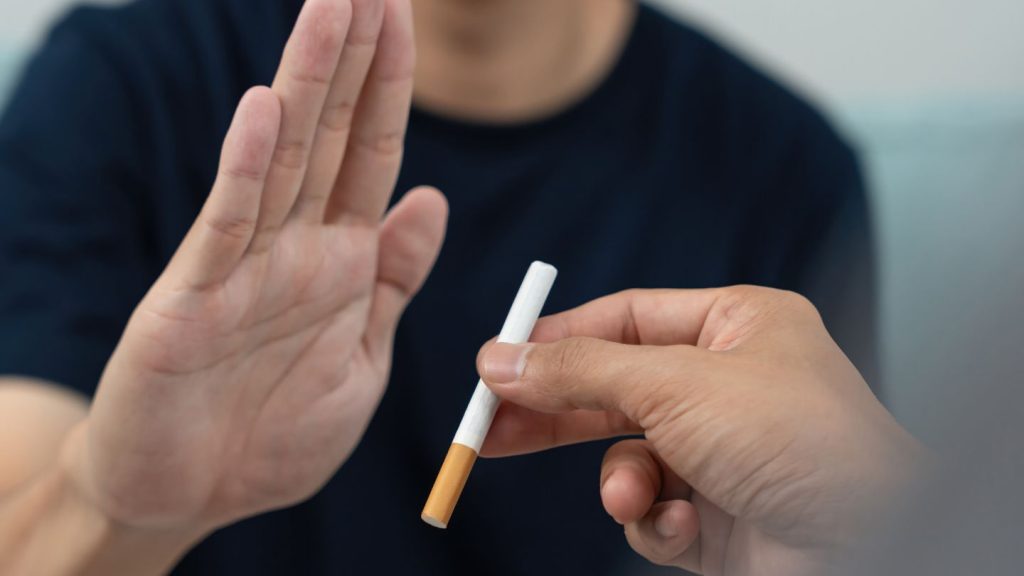
Can You Smoke After Bariatric Surgery? Understanding the Risks and Guidelines
Smoking after bariatric surgery can lead to severe complications, such as blood clots, wound healing problems, and gastrointestinal issues. This blog explores the risks associated with smoking post-surgery, the specific dangers of different types of bariatric procedures, and offers guidelines for smoking cessation before and after the operation.
Key Takeaways
Smoking significantly increases the risk of surgical complications and prolongs recovery for bariatric surgery patients, necessitating smoking cessation before and after the procedure.
Smoking after surgery increases the risk of blood clots, wound healing issues, gastrointestinal problems, weight regain, and cardiovascular risks.
Patients are advised to quit smoking two weeks before surgery and remain smoke-free for 12 weeks after, supported by counseling and resources.
Smoking and Bariatric Surgery
Undergoing bariatric surgery necessitates patients to address the substantial risks associated with smoking, which can hinder their recovery and amplify surgical hazards. The risk of experiencing surgical complications is markedly increased by continued tobacco use. To enhance postoperative results and forestall additional health challenges, it’s crucial for bariatric patients to stop smoking.
Smoking after undergoing a bariatric procedure has widespread negative impacts that span various elements of the patient’s recuperation journey. It escalates the likelihood of forming blood clots, impedes wound healing processes, and exacerbates gastrointestinal difficulties—all potentially leading to grave conditions that may even be life-endangering for individuals who smoke following their surgery.
It is essential to scrutinize these particular complications more meticulously due to their severity in affecting individuals who have undergone bariatric surgeries.
Read more: Tips to Avoiding Complications After Bariatric Surgery
Increased Risk of Blood Clots

Undergoing bariatric surgery necessitates the cessation of smoking due to the considerable health hazards it presents. Notably, smokers who have undergone gastric bypass face a substantially increased likelihood of blood clot development since tobacco use results in narrowed blood vessels that impede circulation, thus amplifying this risk when combined with already reduced blood flow through the digestive system post-surgery.
These clots can give rise to critical issues such as pulmonary embolism—a potentially fatal event. The dangers are magnified when patients continue smoking after weight loss surgery. Hence, halting tobacco usage well ahead of undergoing surgical procedures is imperative for reducing these risks.
Persisting with smoking following weight loss surgery not only invites potential long-term complications but also may negatively affect recovery from the procedure itself. It’s crucial for patients to understand and take seriously the elevated risks associated with continuing to smoke after their operation.
Wound Healing Complications
Smoking notably hinders the healing of surgical wounds by reducing blood flow due to the constriction of blood vessels. As a result, it delays the recovery of surgical incisions and increases the probability of developing infections and additional complications. This extends not only the duration needed for recuperation but also increases the chances of experiencing significant postoperative issues like wound infections and leaks.
Proper healing following bariatric surgery is vital for achieving favorable results. Complications related to wounds may necessitate extra medical procedures and an extended period of convalescence. Abstaining from smoking promotes the effective repair of surgical wounds while aiding in averting negative health outcomes.
Read more: Post-Op Bariatric Surgery Incision Care
Gastrointestinal Issues
Patients who undergo bariatric surgery and continue to smoke confront a substantial threat of gastrointestinal complications. The likelihood of ulcer formation post-surgery is doubled for smokers, potentially causing grave issues that may necessitate Medical treatments. This danger escalates notably for those who have had a gastric bypass due to the extensive alterations made to their digestive systems during the procedure.
Gastric bypass patients face an elevated risk that can markedly impede their overall health and hinder the recovery process from surgery when they smoke, as it increases the chance of developing ulcers, among other complications. It’s crucial for these individuals to understand how detrimental smoking is after undergoing such operations in order to safeguard their digestive system and enhance recuperation prospects.
Read more: Life After Weight Loss Surgery: Insights from the Gastrointestinal Division
Long-Term Health Impacts of Smoking After Surgery

Undergoing bariatric surgery requires patients to consider the extensive health repercussions associated with smoking afterward. Continuing to smoke can escalate the likelihood of enduring problems, including marginal ulcers and persistent abdominal discomfort, which collectively contribute to a diminished quality of life. Those who persist in smoking after their procedure face a higher propensity for post-operative complications that may compromise both their recuperation and ongoing well-being.
For those who have had bariatric surgery, quitting smoking is critical for enhancing recovery outcomes while simultaneously reducing pervasive long-term health hazards. The avoidance of subsequent weight regain and lessened cardiovascular threats are significant factors underlining why cessation from smoking holds paramount importance for individuals recovering from bariatric procedures.
Weight Regain and Insulin Resistance
Engaging in smoking after bariatric surgery can lead to the adverse effect of gaining back lost weight. Individuals who smoke and opt for gastric sleeves are more likely to be readmitted, reflecting difficulties with sustaining their achieved weight loss. Insulin resistance can be intensified by smoking, making it harder for those who have undergone surgery to manage diabetes.
Consequently, these issues not only pose a considerable barrier to reaching long-term objectives in shedding excess pounds but also hinder the control of conditions associated with obesity. This highlights how critical quitting smoking is for enhancing outcomes related to losing weight and boosting overall health post-surgery.
Cardiovascular Risks
Engaging in smoking following bariatric surgery notably escalates the chances of encountering cardiac complications. Patients who persist in their use of tobacco after undergoing such a procedure face a heightened risk for heart disease, with potentially grave ramifications for their health over time.
The risks associated with post-surgical smoking extend to greater incidences of blood clots and diminished blood flow, among other cardiovascular concerns, emphasizing the importance of cessation for individuals who have had bariatric surgery. Bariatric patients can minimize these risk factors and improve both their recuperation process and long-term health by committing to quit smoking.
Specific Risks for Different Types of Bariatric Surgeries
Smoking significantly amplifies the likelihood of encountering specific complications for those undergoing different bariatric surgeries. Patients who smoke and opt for gastric sleeve surgery are markedly more susceptible to severe issues, including bleeding ulcers and sepsis. For individuals receiving gastric bypass surgery, smoking can lead to a heightened incidence of internal hernias as well as problems related to nutrient absorption.
The particular complications linked with both gastric sleeves and bypass procedures underscore the critical importance of quitting smoking. By understanding the detailed risks associated with each surgical intervention, it becomes evident why abstaining from smoking is vital for patients involved in any form of bariatric surgery.
Gastric Sleeve Surgery

The act of smoking can elevate the likelihood of ulcer formation post-gastric sleeve surgery, attributed to its negative impact on blood circulation and healing processes. There’s a heightened chance for smokers to experience hernias following the procedure. Such complications may result in extended recuperation times and necessitate Healthcare procedures.
For individuals who have undergone gastric sleeve surgery, dehydration poses an additional concern exacerbated by tobacco usage. Highlighting these concerns underscores the criticality of cessation from smoking both for an enhanced recovery trajectory and improved health over time.
Gastric Bypass Surgery
Patients undergoing gastric bypass surgery who smoke before the operation are at an increased risk of developing internal hernias, a serious complication that can occur after a laparoscopic Roux-en-Y gastric bypass (L-RYGB). Smokers are exposed to a hazard ratio adjustment of 2.2 for internal herniation, which signifies that their risk is two times greater than that faced by non-smokers.
Continuing to smoke following gastric bypass surgery can interfere with the absorption of essential nutrients and negatively impact weight loss achievements, as well as lead to deficiencies in these vital substances. It’s crucial for patients to quit smoking both before and after surgery in order to improve recovery prospects and maintain better long-term health following their weight-loss procedure.
Guidelines for Smoking Cessation Before and After Surgery
Avoiding tobacco products is crucial for patients undergoing bariatric surgery to ensure fast healing and optimal results. Preoperative and postoperative smoking cessation are essential steps to minimize risks and enhance recovery outcomes. Detailed guidelines for smoking cessation prior to quitting smoking before and after surgery are provided below.
Preoperative Smoking Cessation
Patients receive education during preoperative counseling about the various risks and potential complications that smoking can pose. It is recommended for patients to cease smoking at a minimum of two weeks before undergoing bariatric surgery to decrease perioperative dangers, though extending this period to six weeks may Optimize risk reduction.
It is widely advised by numerous guidelines that patients should abstain from smoking for no less than two weeks before their surgery date. By quitting smoking four weeks prior to the procedure, patients can improve their surgical outcomes and minimize the chance of experiencing complications.
Postoperative Smoking Cessation
It is imperative for patients to abstain from smoking for a minimum of three months following bariatric surgery to promote optimal healing. Various support mechanisms are available, including nicotine replacement therapies, counseling services, and support groups, which can assist patients in their efforts to cease smoking after the procedure.
Adhering to a non-smoking regime throughout the essential recovery phase improves the healing process and mitigates the likelihood of complications arising post-surgery. The cessation of smoking plays a vital role not only in securing long-standing health advantages but also in realizing successful outcomes related to weight loss.
Creating a Smoke-Free Environment

It is essential to maintain a smoke-free environment following bariatric surgery in order to prevent negative health consequences and support optimal healing. The act of smoking can impede recovery progress and lead to diminished life quality. To avoid the risks associated with second-hand smoke, one should avoid environments such as public places or social events where smoking is likely.
Expressing your dedication to quit smoking with friends and family can help establish an encouraging atmosphere for recuperation. Through supportive dialogue, you cultivate a tobacco-free setting that simplifies the process of quitting smoking, thereby improving overall post-surgery recovery results.
Read more: Bariatric Surgery Recovery Tips
Support Systems and Resources
Counseling before surgery aids patients in halting their smoking habits, which is instrumental for successful recuperation. For those preparing for bariatric surgery, assistance from various support systems and resources is crucial to encourage the cessation of smoking.
Utilizing these support mechanisms enables patients to establish a robust network that promotes living without tobacco use. This not only bolsters the healing process post-surgery but also secures more favorable health results over an extended period.
Read more: Top 5 Steps to Prepare for Weight Loss Surgery
Summary
Ultimately, smoking poses a significant threat to those undergoing bariatric surgery, increasing the risk of complications and hindering both immediate recovery and long-term health outcomes. The dangers include a higher likelihood of blood clots, wound healing issues, gastrointestinal problems, and cardiovascular risks, all of which can undermine the success of weight loss surgery and overall well-being.
At Wellstar Comprehensive Bariatric Services, we offer expert care and support for patients considering weight loss surgery in Smyrna, East Cobb, Marietta, Austell, LaGrange, and other locations across Georgia. Our team is dedicated to ensuring the best possible outcomes and guiding you on your journey to improved health. Contact us to learn more.
